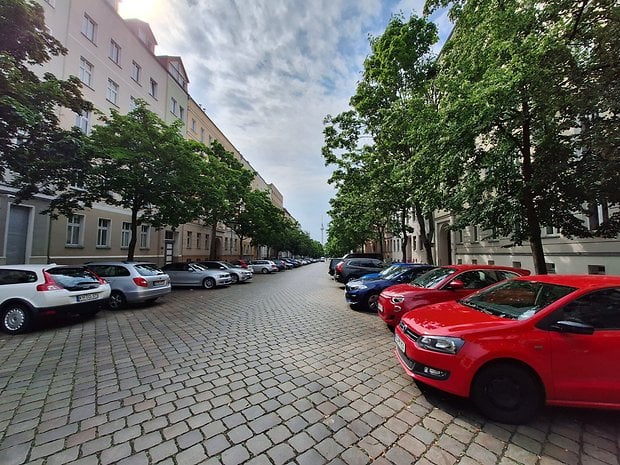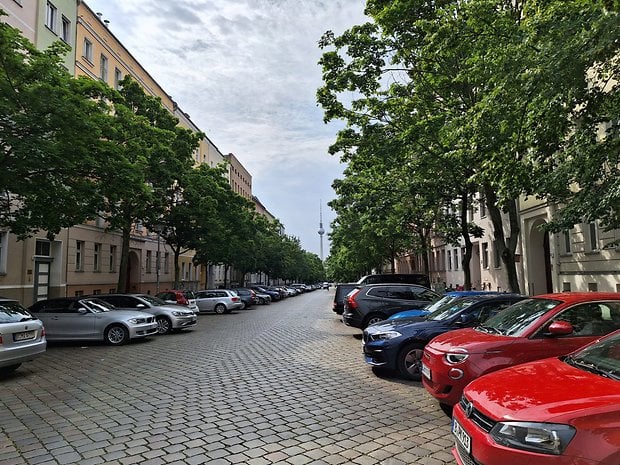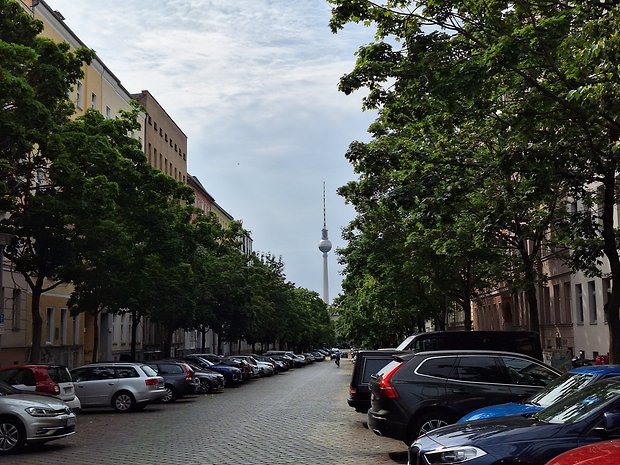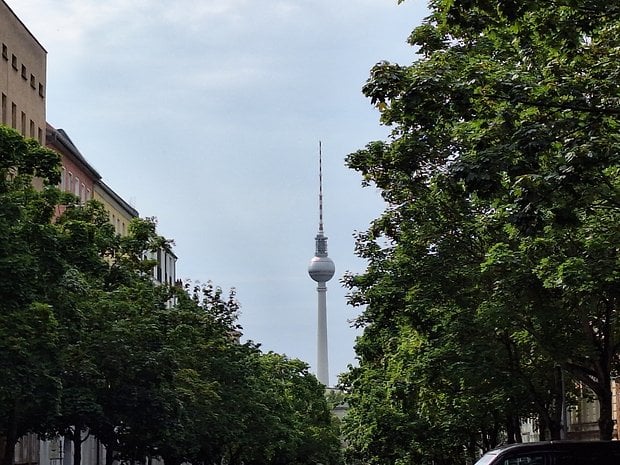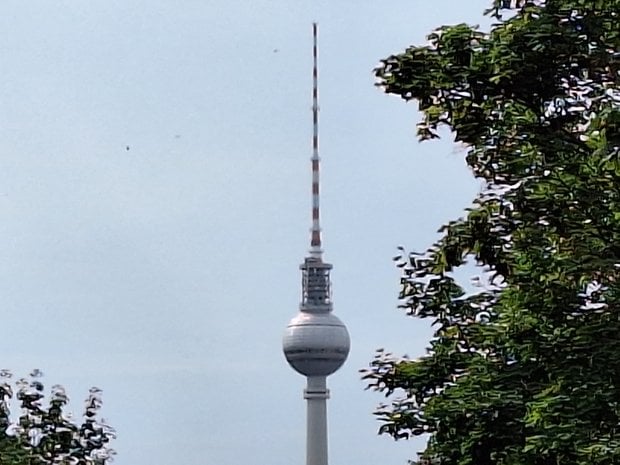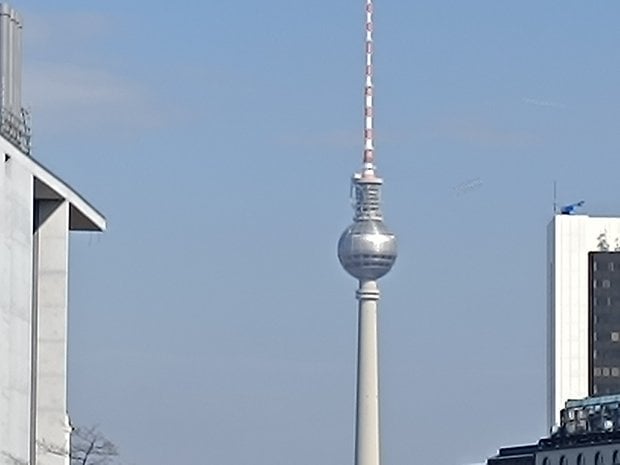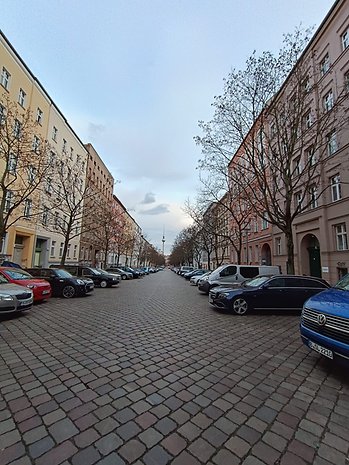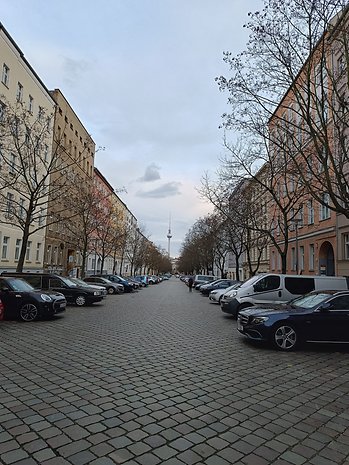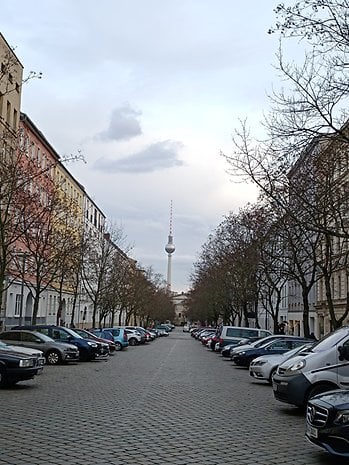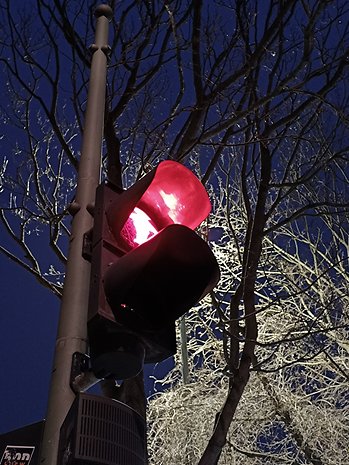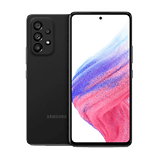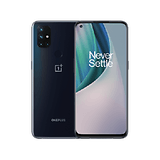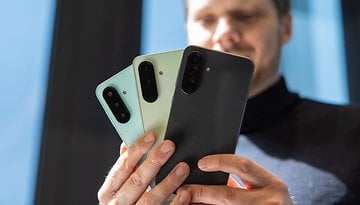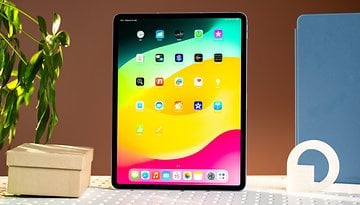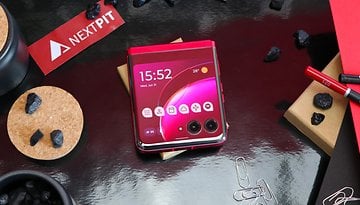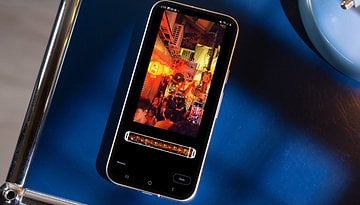Redmi Note 12 Pro+ vs Samsung Galaxy A54: Mid-Range Duel
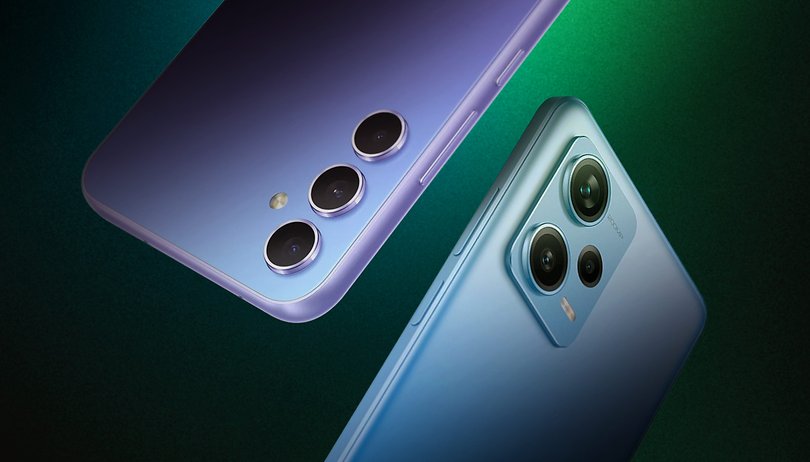

Despite all the attention to the flagship market, mid-range smartphones are usually the most sold devices, at least in the Android ecosystem. In this article, we pit head-to-head the 2023 contenders of Samsung and Xiaomi's best-selling product lines: The Xiaomi Redmi Note 12 Pro+ 5G versus the Samsung Galaxy A54 in price, specifications, camera, performance, battery life, and more.
With a careful balance between features and pricing, both intermediate phones tread a very delicate line between cost-savings and innovations, and the 2023 models from Xiaomi and Samsung took slightly different approaches to the formula. First, however, let's pit the specifications of both models:
- Also read: Xiaomi and Samsung smartphones compared
Xiaomi Redmi Note 12 Pro+ vs Samsung Galaxy A54: Technical specifications
| Xiaomi's mid-range | Samsung's mid-range | |
|---|---|---|
| Product | ||
| Image |

|
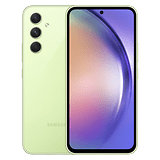
|
| MSRP | approx. $470 | from $449 |
| Display | 6.67" OLED | 6.4" OLED |
| 2,400 x 1,080 pixels | 2,340 x 1,080 pixels | |
| 120 Hz refresh rate | ||
| SoC | MediaTek Dimensity 1080 | Samsung Exynos 1380 |
| Working memory | 8 GB RAM | 8 GB RAM |
| Memory | 256 GB | 128 / 256 GB |
| Expandable memory? | ❌ | ✔️, expandable up to 1 TB |
| OS | MIUI 14 based on Android 12 Two promised Android updates |
One UI 5.1 based on Android 13 Four promised Android updates |
| Camera | Main: 200 MP, f/1.65, OIS Ultra-wide angle: 8 MP, f/2.2 Macro: 2 MP, f/2.4 |
Main: 50 MP, f/1.8, OIS Ultra-wide angle: 12 MP, f/2.2 Macro: 5 MP, f/2.4 |
| Selfie camera | 16 MP, f/2.5 | 32 MP, f/2.2 |
| Battery | 5,000 mAh 120 W wired charging |
5,000 mAh 25 W wired charging |
| Connectivity | 5G / LTE / Wi-Fi 6 / Wi-Fi Direct / Bluetooth 5.2 / NFC | 5G / LTE / Wi-Fi 6 / Wi-Fi Direct / Bluetooth 5.3 / NFC |
| IP Certification | IP53 | IP67 |
| Colors | Polar White, Midnight Black, Ice Blue | Awesome Lime, Awesome Graphite, Awesome Violet, Awesome White |
| Dimensions and weight | 162.9 x 76.0 x 8.98 mm, 211 g | 158.2 x 76.7 x 8.2 mm, approx. 202 g |
| Good |
|
|
| Bad |
|
|
| Rating |
|
|
| Deals* | ||
In this page, we will compare both phones in a number of categories after testing them for a while. You can also join us in comparing the camera quality in both Xiaomi and Samsung mid-rangers, together with offerings from Apple, Google, and Nothing in nextpit's sub-$500 camera blind test.
Display and design
Displays have always been Samsung's strong point, and the Galaxy A54 is no different in that regard. The 6.4'' Super AMOLED panel offers a superb contrast ratio, punchy colors, and smooth animations, thanks to its 120 Hz refresh rate.
The Xiaomi mid-ranger, however, is similarly equipped but with a bigger 6.67'' screen that refreshes at the same 120 Hz rate of the FullHD+ display. Having said that, the Galaxy A54 panel is a little bit brighter at 1000 vs 900 nits.
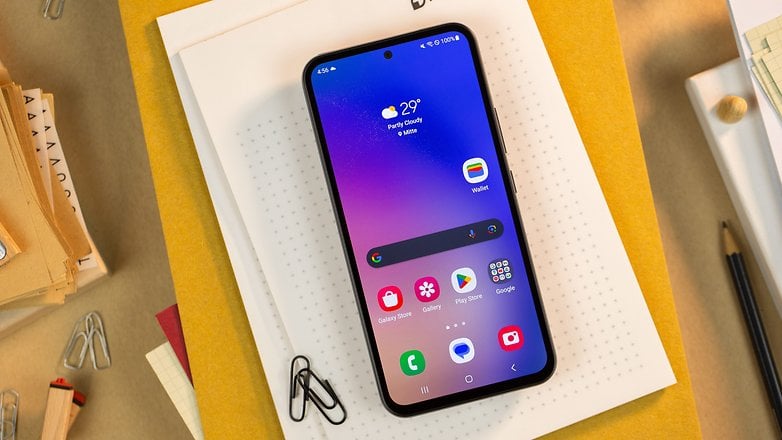
The Galaxy A54 also scores points with its waterproofing, with an IP67 certification against Xiaomi's IP53; a glass back instead of plastic, and the storage expansion compatibility with microSD support not found on the Xiaomi. Finally, the Samsung phone is lighter, due to its smaller display.
For the Redmi Note 12 Pro+ we find a headphone jack not available on the Galaxy A54 and the fact that Xiaomi used thinner bezels around the display, which makes the Redmi better use the available real estate.
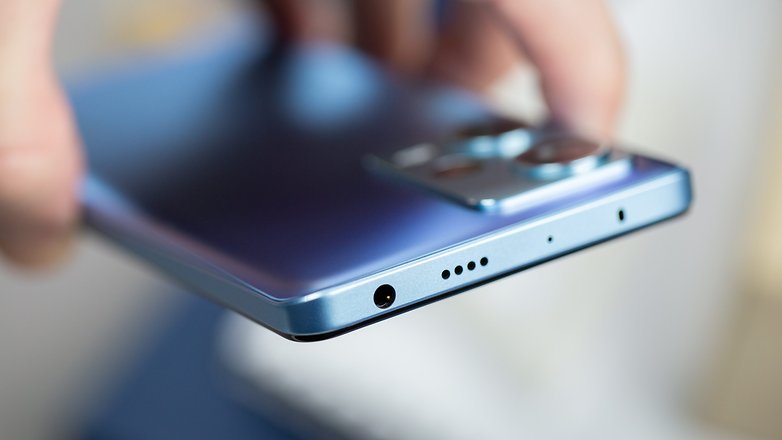
Performance and connectivity
The performance department has a clear winner, even if by a small margin: The Samsung Galaxy A54. In daily use, both phones perform well while browsing the web, doomscrolling on social media, taking and sharing photos. When put to the test, the Samsung mid-ranger gets a small victory over the Xiaomi rival, as demonstrated by the table below:
| Samsung Galaxy A54 (Exynos 1380) |
Redmi Note 12 Pro+ (Dimensity 1080) |
|
|---|---|---|
| 3DMark Wild Life |
|
|
| 3DMark Wild Life Stress Test |
|
|
| Geekbench 6 |
|
|
The good news is that both smartphones are very capable when it comes to gaming sessions, even longer ones, with no sign of overheating or thermal throttling. With most games targeting older mid-range phones, you won't have problems playing the most popular titles available on the Google Play Store.
Cameras
Xiaomi is not afraid to push the boundaries of image resolution on its phones, and the Redmi Note 12 Pro+ is a good example in that regard, even if it enlists the help of its biggest enemy. Yes, the 200 megapixels sensor used on the Xiaomi phone is supplied by Samsung, repeating an arrangement made for earlier phones with 200 or 108 megapixels.
Despite the impressive number, both phones return a similar image quality level when it comes to the main camera, regardless of shooting in daylight or during the night.
While Xiaomi invested hard to get a super high-resolution sensor on the main camera when compared to the competition, the other lenses on the Redmi Note 12 Pro+ took a step back against the Galaxy A54, and the lower resolution on the ultra-wide-angle camera and, especially, on its 2 megapixels macro sensor, can be noticed in the real world.
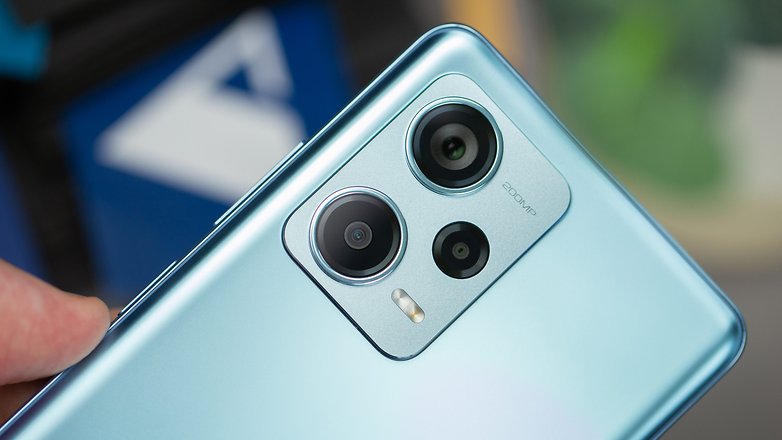
On the selfie front, Samsung equips the Galaxy A54 with a higher resolution camera, but the Redmi Note 12 Pro+ results are equally as good, despite having half the image resolution—16 instead of 32 megapixels.
Software
The Android skins from both manufacturers are largely a matter of taste. There are eager advocates of either MIUI 14 or One UI 5.1 on both sides, but we also clearly side with Samsung when it comes to software. Especially since the South Koreans promise 4 Android upgrades for the Galaxy A54 while Xiaomi is committed to only updating the Redmi Note 12 Pro+ twice.
Then there is the usual bloatware issue that always raises one's displeasure with Xiaomi devices. By the way, we will tell you how to get rid of the ads on Xiaomi smartphones in a separate article. The Redmi Note 12 Pro+ comes out of the box with a selection of streaming services, social media apps, and games, while the Galaxy A54 starts at around four third-party apps depending on the region.
A side-effect of that is that the Xiaomi started our review with 31.4 GB of used storage, while the Samsung phone used 29.79 GB—for reference, a clean Android 13 installation takes around 21 GB on the Pixel phones.
- Here are over 30 tips for your Samsung phone with One UI
- These Samsung models will receive the Android 13 update
- List of Xiaomi, Redmi, and Poco models that will receive the MIUI 14 update
Battery and quick-charging
When it comes to the battery, it has become a tradition that Samsung takes second place right from the start—no matter with which device we compare a Samsung smartphone to. This is once again the case in the duel between the Galaxy A54 and the Redmi Note 12 Pro+: Both offer us 5,000 mAh, but the differences in charging are massive!
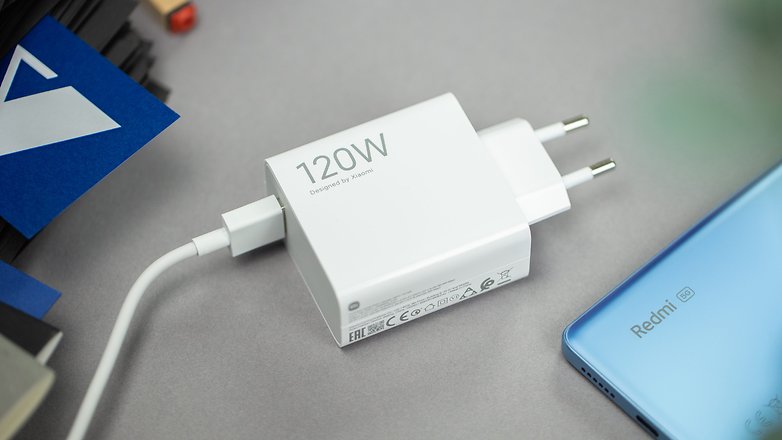
Thus, Xiaomi charges at a really fast and impressive 120 W speed, while Samsung chugs along at a cozy 25 W. This means that the Redmi Note 12 Pro+ is completely (!) charged in a mere 19 minutes, while Samsung's marketing department continues to talk about sustainability.
During nextpit's reviews, the Redmi Note 12 Pro+ didn't quite reach the manufacturer's claims, getting a full charge after around 32 minutes. That was almost four times faster than the Galaxy A53, which took almost two hours. On the other hand, when it came to battery life, the Samsung phone did slightly better than the rival on the PC Mark benchmark.
| Galaxy A54 | Redmi Note 12 Pro+ | |
|---|---|---|
| 5 minutes |
|
|
| 10 minutes |
|
|
| 20 minutes |
|
|
| 30 minutes |
|
|
| 1 hour |
|
|
| Full charge |
|
|
| PC Mark Battery test |
|
|
Both manufacturers left us out to dry when it comes to wireless charging. However, there are no issues with charging, because Samsung does not provide us with a charging adapter, but Xiaomi includes a 120 W charger in the box. The clear winner here is Xiaomi!
Price and availability
Both manufacturers have been rolling out their mid-range flagships to smartphone enthusiasts since the end of March. The differences are marginal here as well: Samsung starts at $449, whereas Xiaomi can be found for $470 a pop. Why does Xiaomi come out better here as well? This is because you get 256 GB of storage for $470, while Samsung's $449 get you the 128 GB model. If you also want the larger version with 256 GB of storage, you will have to pay more!
Conclusion
In the end, both mid-range smartphones showed improvements that tried to distance themselves from earlier models but took different paths from each other on their way.
Xiaomi went straight to the specifications game, with superfast charging and the highest camera resolution not only in the intermediate market but also in the smartphone space as a whole. Samsung, on the other hand, changed the design on the A54 phone to make it closely resemble the flagship line, while doubling down on its superior software support.
Because of that, picking the best mid-range phone is a subjective matter. If you like having one of the fastest charging times in the segment, a big screen for media consumption, or even a 200 megapixels camera to boast about, the Xiaomi Redmi Note 12 Pro+ is probably your match.
However, if you prefer a slightly faster phone, with the best long-term software support in the Android market, and a slightly more compact phone, the Galaxy A54 is probably best for you.
And of course, if you already have a favorite brand or interface, there is not point arguing, and you were right even before starting reading this. And because of that we will leave the question open as to which of these two manufacturers has more hope for the mid-range smartphone crown in 2023.
Do you already have a favorite? Then let us know in the comments - and check nextpit regularly so that you do not miss the reviews or our updated comparison between the Galaxy A54 and the Redmi Note 12 Pro+.
Article updated in July 2023 after reviewing both phones. Previous comments were not deleted and may appear out of context.





